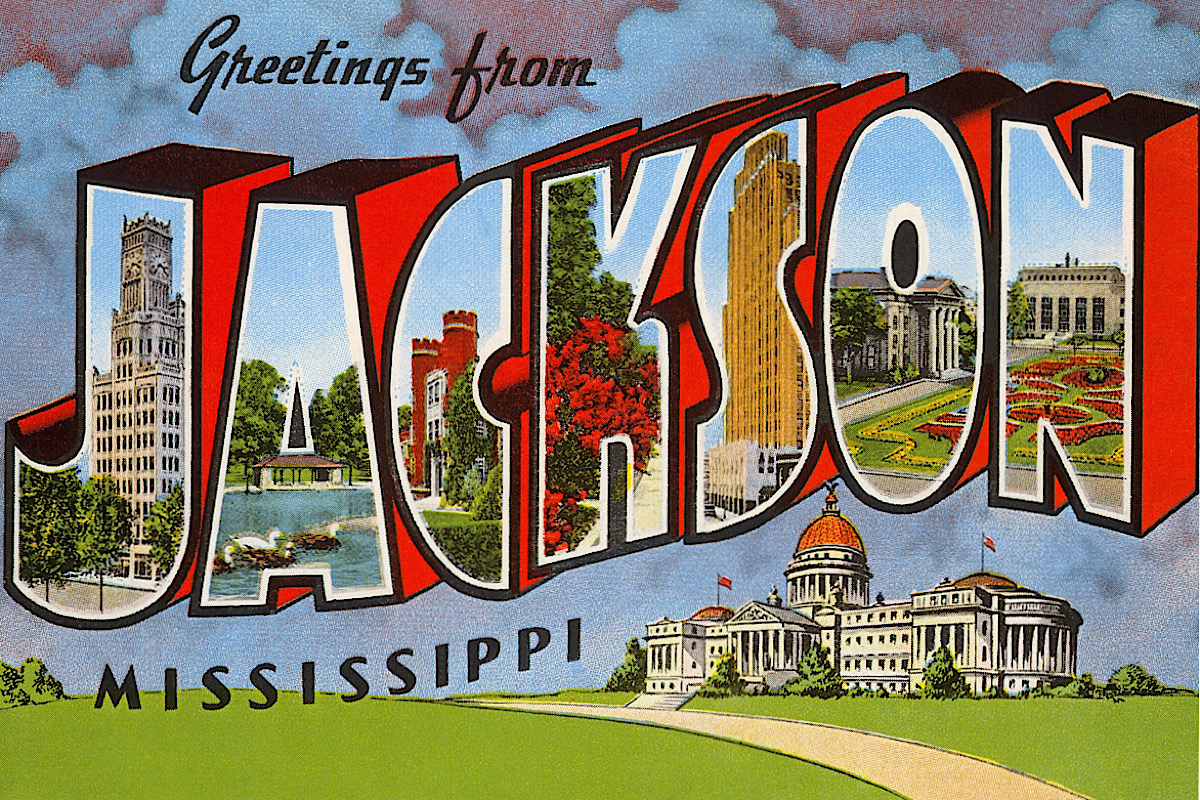Growing up in a heavily Jewish suburb near Chicago meant running between multiple bar mitzvah services each weekend. It meant attending a public school that gave us Rosh Hashanah, Yom Kippur, and sometimes even the first days of Passover off because so many people would miss. It meant going to my Conservative synagogue in Highland Park, which, before it became known for something horrible, I knew as the place we bought our bagels — and as a town so Jewish I used to call it “Chailand Park.”
College was more of the same. My university has a thriving Hillel, Chabad and numerous other Jewish spaces. I went to student-led Passover seders and joined a Jewish writers’ group. I fasted with friends, attended Shabbat dinners so crowded that I couldn’t see the front of the room, and again took for granted the fact that I had an overwhelming number of options for how to live Jewishly.
When I went to Jackson, Mississippi this summer for an internship, I (rightly) assumed that the Judaism whose inundation I took for granted would look very different. There is, for example, only one full-time synagogue in the entire state. There are no kosher restaurants, no JCCs. Instead of people greeting me with rapid-fire Jewish geography upon introduction, I was often asked which church I attended. The nearest roller skating rink was Christian (yes, that is an actual thing), with slideshows telling attendees to love Jesus projected on the wall and Bible verses scrawled on the scuffed hardwood. 120-foot-tall crosses loomed over us in front of churches, office buildings and even a crawfish restaurant.
But while Jackson’s Jewish community is indeed very small at less than 1,000 people, I had wrongfully assumed that it was dying. That it was quiet, isolated. That Shabbat services were a sad affair. Here, I was very wrong.
Beth Israel Congregation, Jackson’s only synagogue — and Mississippi’s only one with a full-time rabbi — was founded in 1860 as an Orthodox Congregation before joining the Reform Movement, where it remains today, around 1875. It first retained a full-time rabbi in the 1920s, when a large number of Jewish families moved to the area. During the next 40 years, the synagogue moved locations, expanded its religious school and grew to a membership of 150 families.
It was then that Rabbi Perry Nussbaum took over. Though some in the congregation feared that being outspoken on issues of civil rights would lead to retaliatory and/or antisemitic attacks on the Jewish community, Rabbi Nussbaum described himself as “never a diplomat” and, throughout his tenure, was a public voice for antiracism. He acted as a chaplain for incarcerated Freedom Riders, helped raise money to rebuild Black churches that white supremacists destroyed and discussed racial justice in his sermons.
For doing so, both Rabbi Nussbaum’s house and Beth Israel Congregation were bombed by members of the Ku Klux Klan.
The Mississippi Civil Rights Museum displays some broken glass from a window that was shattered in the bombing, and there is something so horribly beautiful about seeing the shards in a museum and then walking past that same window, repaired, to sit down for Shabbat services.
The current rabbi’s office sits in the exact same location as the previously destroyed office of Rabbi Nussbaum.
That Friday, the sermon was about “South Park.” A few weeks ago, it was about abortion. There was music — Debbie Friedman and Matisyahu. We had challah and wine. The rabbi greeted everyone with “shalom y’all.” The sanctuary wasn’t full, but it wasn’t empty, either.
I went to Shabbat services the Friday after the Highland Park shooting — which meant that I wasn’t just going out of curiosity about what services at Jackson’s only synagogue might look like, but because of a genuine need for community with other Jewish people.
I had planned to mention the community during the Mourner’s Kaddish and the Mi shebeirach, the prayer for healing, but another congregant named it before me.
I went up to him after services to thank him for his words, to tell him how glad I was to be able to pray in this space with him, and he told me that, before moving to Jackson decades ago, he went to a synagogue in Highland Park. A rapid-fire game of Jewish geography confirmed that he’d gone to mine. And as we stood there, challah in hand, laughing but also completely unfazed by the connection, I thought about how hard this synagogue fought to exist and thrive and how, despite pushback and tension and fear, it fiercely cared for the community around it. I felt so proud — and so ashamed for how easily I wrote off an entire region of Jewry. And so sad to be leaving a community that made me love being Jewish more than I even knew I possibly could.



